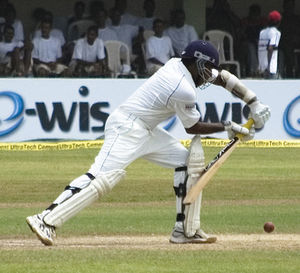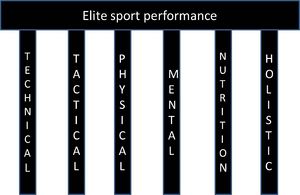Task 2
From WikiEducator
< OERuESP1
| Psychological Foundations of Exercise and Sport (#OERuESP1) | |
|---|---|
Course overview | Course homepage | Course resources | Development team |
Course tasks | Introduction | Context evaluation | Psychological influences on performance | Performance enhancement strategies |
Context Evaluation Task
The Six Pillars of Sports Performance
Context evaluation
| Context evaluation task |
|---|
| Estimated time for completion: 5 hours
|
| Here I would like you to think a little more deeply about the psychological challenges in the sport of your choice.
|
| ||
|
To complete this task:
|
The Six Pillars of Sports Performance
- Technical – this performance pillar refers to the fundamental and more advanced skills of the sport. In soccer, for example, these would include passing, receiving, dribbling, shooting, heading, tackling, throw-ins, penalty-taking, goalkeeping, and so on.
- Tactical – this performance pillar refers to strategies and decision-making. In soccer, it would include formations (4-2-3-1, 4-4-2, 4-3-3, etc.), decisions about zonal or man marking, pressing and offside strategies, triangular movement, counter attacking, set piece plays, and so forth.
- Physical – this performance pillar refers to the strength and conditioning aspects of elite performance, such as aerobic and anaerobic fitness, strength, speed, power, flexibility, agility, balance, etc.
- Mental – the mental pillar is the one addressed in this micro-course. It refers to a wide range of psychological variables that influence performance and are influenced by it. The typical list of mental skills associated with elite athletes includes positive attitudes, mental imagery and self-talk, high self-motivation and self-confidence, good concentration, and effective management of emotions and moods. In team sports, effective leadership and group cohesion are especially important.
- Nutrition – this performance pillar refers to such things as general diet, nutrition specific to training and competition, assessment of body composition, hydration strategies, and use of legal supplements.
- Holistic – this pillar concerns factors such as career planning and development, financial management, insurance, personal organisation and leadership. An elite athlete’s playing career may be short and so many sport organisations acknowledge that they have a responsibility to support holistic development and thereby assist players to prepare for a life after sport.


